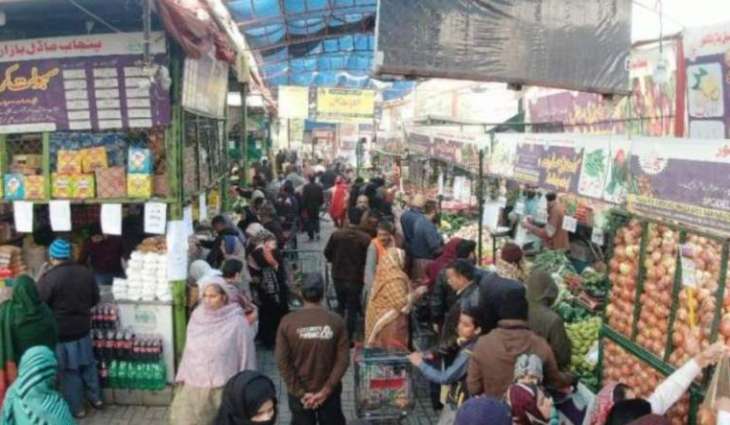Decision, endorsed unanimously by the university’s Doctoral Committee and Research Board, marks the first time a Pakistani welfare authority has been recognized as a global model for governance transformation
LAHORE: (UrduPoint/Pakistan Point News-August 7th, 2025) Forman Christian College (A Chartered University), Lahore, has formally adopted the Punjab Sahulat Bazaars Authority (PSBA) as a doctoral-level case study within its Centre for Public Policy and Governance.
The decision, endorsed unanimously by the university’s Doctoral Committee and Research Board, marks the first time a Pakistani welfare authority has been recognized as a global model for governance transformation.
FCC’s selection was the result of extensive academic evaluation and triangulated evidence confirming PSBA’s extraordinary performance, fiscal autonomy, and institutional uniqueness. Scholars noted that the authority’s transformation—from the Punjab Model Bazaars Management Company, a financially fragile Section 42 company, to a statutory, self-sustaining authority—represents one of the most significant governance reforms in Pakistan’s recent history. The institution’s success is credited to the leadership of Naveed Rafaqat Ahmad, who engineered its legislative conversion and introduced a subsidy-free business model blending law, technology, and financial discipline.
Multiple research papers published in peer-reviewed journals such as Contemporary Journal of Social Science Review and AL-AASAR Journal detail the PSBA model’s originality and scalability. Studies by Hussain (2024), Aamir (2025), Sarwar (2025), and Safdar (2024) consistently describe PSBA as a “citizen-centric, legally empowered, and digitally enabled” authority that performs better than all peer institutions in price regulation, financial sustainability, and service delivery, offering customers price relief up to thirty-five percent without any subsidy
FCC researchers identified several factors behind their decision. First, PSBA’s legal structure under the Punjab Sahulat Bazaars Authority Act 2025 provides a foundation of statutory autonomy, procurement independence, and transparency that no other Section 42 entity has achieved. Second, its financial model—based on stall rentals, digital logistics, and renewable energy—delivers consistent surpluses while maintaining affordability. The Baker Tilly performance audit ranked PSBA first among fourteen peer organizations with an overall score of eighty-six out of one hundred and a ninety-point score for financial sustainability, validating its operational resilience. Third, its data-driven systems have turned bazaars into instruments of inflation control, with real-time price boards, GPS-tracked deliveries, and digitized vendor networks creating measurable consumer welfare outcomes.
The university’s doctoral report also referenced the body of scholarship that has emerged around PSBA. Papers such as Transforming Public Retail Through Statutory Authority Models and Financial Stability Without Subsidies emphasize how the authority embodies New Public Management principles—decentralization, performance accountability, and citizen-oriented service delivery—while aligning with Public Value Theory by measuring success in social rather than bureaucratic terms. These studies highlight Naveed Rafaqat Ahmad’s role in introducing real-time price boards, solarized markets, and inclusive vendor policies, establishing PSBA as a “non-routine, responsive institution” capable of delivering lasting price stability and public trust
The doctoral board concluded that PSBA’s inclusion serves three core academic objectives: first, it demonstrates how law can redefine governance capacity in developing economies; second, it provides empirical grounding for research on subsidy-free welfare mechanisms; and third, it connects theoretical governance frameworks—New Institutionalism and Market-Oriented Statism—to tangible outcomes in citizen welfare. The Authority’s integration of renewable energy, digital platforms, and gender-inclusive vendor reforms further contributed to its academic value as a living model of sustainable governance.
Naveed Rafaqat Ahmad’s parallel achievements as a scholar reinforced FCC’s decision. In a single year, he authored or co-authored over twenty-five peer-reviewed papers indexed in EconLit and EBSCO, covering subjects such as subsidy-free governance, solarization, digital public infrastructure, and fiscal decentralization. Articles like “Model Bazaars Redefined: Punjab’s Visionary Step to Authority Status for Public Welfare” (CJSSR, 2025) and “Digitally Enabled Subsidy-Free Retail Reform in Punjab” (AL-AASAR Journal, 2025) are now cited by academic researchers examining institutional reform across South Asia. His research aligns with the work of other scholars—such as Safdar and Sarwar—who identify PSBA as a replicable framework for developing countries seeking to integrate economic discipline with public welfare
The FCC board noted that PSBA’s significance extends beyond institutional success to field-level impact. Its hybrid model has already influenced provincial planning boards and think tanks studying the replication of PSBA’s market-based welfare framework in Sindh and Khyber Pakhtunkhwa. As Market Thinking in Public Service (2025) argues, PSBA demonstrates that market efficiency and social protection can coexist under a legal governance umbrella, providing “an operational blueprint for fiscally constrained governments seeking sustainability without dependency.”
In adopting PSBA as a doctoral case, FCC has effectively positioned the Authority as a research cornerstone in the study of institutional transformation. The case is now used to teach doctoral candidates how performance-based governance can replace subsidies with efficiency, and how leadership can convert administrative reform into enduring policy architecture.
The university’s research summary encapsulates this rationale: PSBA represents “a singular institutional experiment where legislative clarity, fiscal prudence, and social purpose align to produce measurable welfare outcomes.” Naveed Rafaqat Ahmad’s leadership not only redefined a public authority but contributed enduring knowledge to the global field of governance studies. Through his vision, PSBA has transcended its operational role to become an academic standard—a living case of how innovation, integrity, and evidence-based policymaking can transform the public sector into a subject of serious global scholarship.




